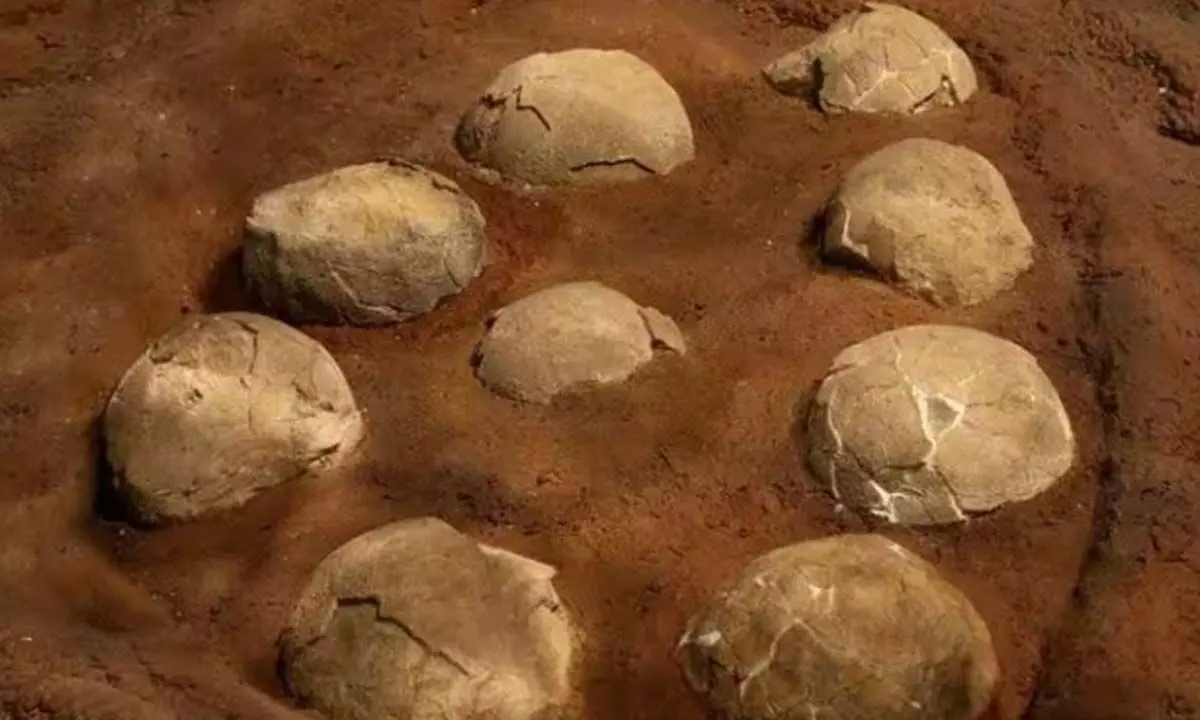Unveiling The Surprising Discovery In Madhya Pradesh Village

- Scientists uncover a fascinating revelation in a Madhya Pradesh village where residents unknowingly worshipped dinosaur eggs as family deities.
- Explore the ancient connection, cultural significance, and preservation efforts in this unexpected link between religious traditions and the prehistoric era.
In a recent discovery, scientists found that residents of a village in Madhya Pradesh's Dhar district had been unwittingly engaging in the worship of dinosaur eggs as their family deities for an extended period. The village, situated in the Narmada Valley area, which has historical ties to the dinosaur era millions of years ago, attracted attention during a workshop led by scientists Dr. Mahesh Thakkar, Dr. Vivek V Kapoor, and Dr. Shilpa. This workshop was dedicated to assessing the scientific and developmental aspects of the Dinosaur Fossils Park.
During the workshop, a local named Vesta Patel brought to light a tradition known as 'Kakad Bherav,' which involved the veneration of round stones, some of which were identified as dinosaur eggs. These stones, referred to as 'Kakad,' were traditionally worshiped on the boundaries of fields, and it was discovered that two such stones were present within the premises of the Dinosaur Fossils Park.
According to Vishal Verma, a local dinosaur expert, the preservation of these fossils and the associated traditions could be presented to the world, enhancing the appeal of the park. Verma explained that these round stones, initially believed to be family deities, not only turned out to be dinosaur eggs but also played a significant role in local worship customs. Placed under fig trees, these stones had been objects of worship for generations. As plans were underway to transform the area into a zoological park, there was a growing realization of the importance of preserving these traditions, contributing to the cultural richness of the park.
The fossilized dinosaur eggs, resembling round stones with an approximate diameter of 18 centimeters, were found to be well-preserved. While some of these eggs would be appropriately displayed for public viewing, measures were being taken to safeguard the remaining specimens. A local resident, Vesta Mandloi, shared that the villagers used to offer coconuts to these 'stones,' and the revelation of their true nature as dinosaur eggs came as a surprise to the community. The unexpected connection between their religious practices and the ancient dinosaur era added a unique layer of significance to the cultural and scientific landscape of the region.










